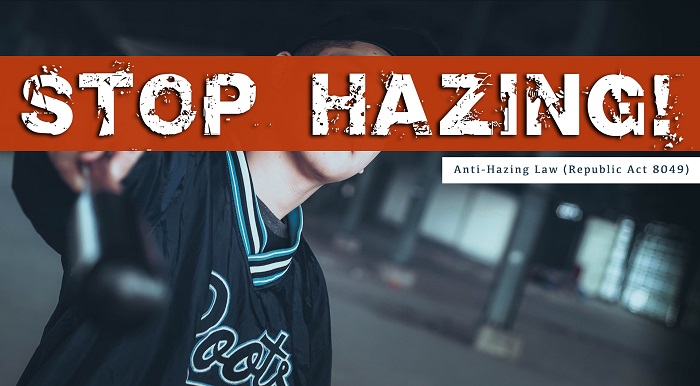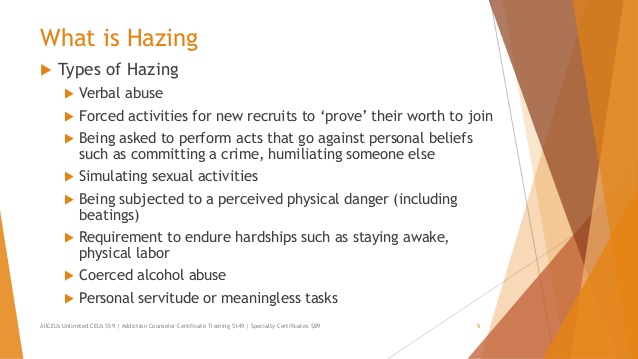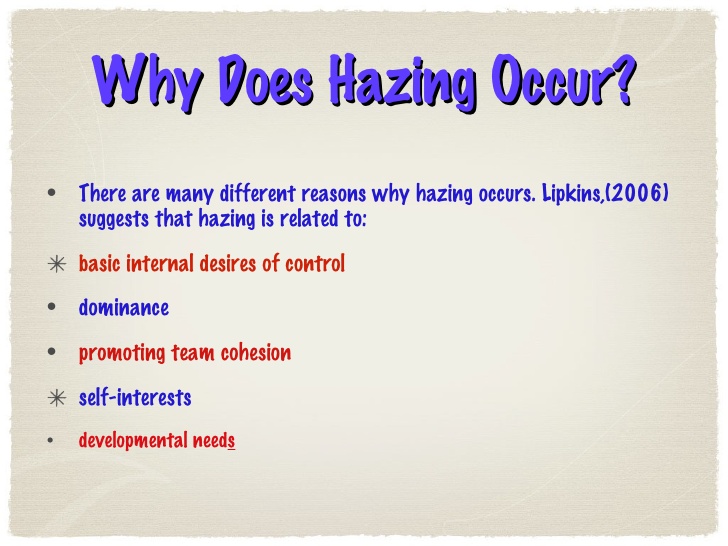
Page Description
Uncover the disturbing realities of college hazing, its impacts on students, and the urgent need for reform and prevention strategies.



Hazed to Death by an Elite Social Club: The Tragic Story of Sanda Dia
30 jul 2024
On December 5th, 2018, Sanda Dia, a clever, and ambitious young man, had his life tragically cut short during a brutal hazing ritual. Sanda was attempting to join an elite, wealthy, and predominantly white fraternity called Reuzegom at KU Leuven in Belgium. For nearly 48 hours, he endured unimaginable torture.
This case revealed the harsh reality of how racism, classism, and privilege allowed the 18 members involved to avoid serious punishment. The Belgian courts’ decision sparked outrage and raised serious questions about whether money always wins when it comes to justice.
In 2020, when the Black Lives Matter movement began, calls for justice for Sanda Dia erupted across university campuses in Belgium and the Netherlands.
Angered by the trial’s verdict, YouTuber Acid exposed the identities of the 18 boys involved. But, his punishment ended up being greater than what was given to those responsible for Sanda’s death.

Hazing is a form of abusive behavior and is illegal in many jurisdictions. It is important to recognize that hazing is harmful and can have serious consequences for the individuals involved. Nevertheless, if you are looking for general information on the topic, here are some key points about student hazing:
Definition: Hazing refers to any activity or ritual that is used as a condition for joining or maintaining membership in a group or organization, typically in a school or college setting. It can involve physical, emotional, or psychological abuse, and often includes humiliating, degrading, or dangerous behaviors.
Forms of hazing: Hazing can take various forms, including but not limited to, physical abuse such as paddling, hitting, or forcing someone to eat or drink substances; emotional or psychological abuse such as humiliation, intimidation, or isolation; and sexual harassment or assault.
Purpose: Hazing is often used as a rite of passage, a way for groups or organizations to establish power dynamics, maintain tradition, or test the loyalty of new members. However, it is important to note that hazing is harmful and has no place in any educational or social setting.
Risks and consequences: Hazing can have serious physical, emotional, and psychological consequences for the victims, including physical injuries, mental health issues such as anxiety, depression, and post-traumatic stress disorder (PTSD), and even death in extreme cases. In addition, hazing can lead to legal consequences, including criminal charges and civil lawsuits for both individuals and organizations involved.
Laws and policies: Many jurisdictions have laws and policies in place to prohibit hazing. These laws vary by jurisdiction, but they typically impose penalties such as fines, community service, and even imprisonment for those found guilty of hazing. Schools and colleges may also have their own policies and disciplinary measures in place to address hazing incidents.
Prevention and intervention: It is important to actively prevent and intervene in hazing incidents. This includes educating students, faculty, and staff about the dangers of hazing, promoting a culture of respect and inclusion, and providing safe and confidential channels for reporting hazing incidents. Schools and colleges should also enforce strict anti-hazing policies and take appropriate disciplinary actions against those who engage in or condone hazing.
Reporting and support: Victims of hazing should be encouraged and supported in reporting incidents to appropriate authorities, such as school officials, law enforcement, or helpline services. It is important to provide victims with access to resources for physical and mental health support, and to ensure their safety and well-being.
In summary, hazing is a harmful and illegal practice that has no place in any educational or social setting. It is important to raise awareness, prevent, and intervene in hazing incidents, and support victims in reporting and seeking help.
6 jun. 2018
2 F for fail: Part one – The toxic culture of college hazing | 60 Minutes Australia
5 jun. 2018
3 F for fail: Part two – The toxic culture of college hazing | 60 Minutes Australia
5 jun. 2018
To the outside world they are highly respected, prestigious institutions committed to supporting young Australians as they embark on their journey through tertiary education. But behind the closed doors of many university residential colleges lurks a very different story of degrading initiation rituals and shocking sexual assaults.
Reporter: Allison Langdon
Producers: Alice Dalley, Gareth Harvey
For forty years, 60 Minutes have been telling Australians the world’s greatest stories. Tales that changed history, our nation and our lives. Reporters Liz Hayes, Allison Langdon, Tara Brown, Charles Wooley, Liam Bartlett and Tom Steinfort look past the headlines because there is always a bigger picture. Sundays are for 60 Minutes.
.
4 F for fail: Part three – The toxic culture of college hazing | 60 Minutes Australia
5 jun. 2018
IMPORTANT CONTENT: shocking
Must be seen
5 Australia: Rape on Campus | 101 East
26 apr. 2018
Half a million international students, most of them from Asia, are enrolled to study in Australia. It’s the country’s third-largest export industry, worth $18 billion. But Australia’s reputation as a safe and sunny place to study is under threat after widespread disclosures of rape and sexual assault.
Far from home and family, international students can be particularly vulnerable. Most international students are too scared or too ashamed to speak up if they have been targeted, but some young women have agreed to reveal their stories to 101 East.
“I got pushed on the bed and I got raped,” says Leu, a Chinese student at the Australian National University. “He kept saying, ‘I’ll get what I want’. I couldn’t move, I could only scream.”A survey by the Australian Human Rights Commission found 22,000 students said they had experienced sexual assault in a university setting in the years 2015 or 2016.
Few students press charges against their alleged perpetrators. International students like Leu say they are afraid of potential repercussions and the stigma surrounding rape. “We thought back then that Australian law only protects Australians. And if we report things like this, they probably think we are causing trouble for them and we probably would get deported, can’t finish our school,” says Leu.
When students do report alleged assaults, women’s advocates say universities often fail to provide appropriate support. As universities face a crisis over the shocking levels of sexual harassment and assault, 101 East investigates how foreign students have become prey on Australian campuses.
6 – 10 Most Sadistic College Hazing Pranks / Initiation Rituals of All Time
28 jan. 2016
7 Penn State hazing death video shows pledge’s final hours
13 jun. 2017
8 Alarming texts ex-Penn State frat member allegedly sent during hazing
9 Penn State Fraternity Hazing Death: Tim Piazza’s Girlfriend Speaks Out | TODAY
16 mei 2017
10 Boys Club: Private school privilege and a culture of cover up | Four Corners
17 feb. 2020
11 Cash Cows: Australian universities making billions out of international students | Four Corners
6 mei 2019
Educational: This video is essential viewing
Educational: This video is essential viewing
12 The rape case that put sexual consent on trial | Four Corners
3 dec. 2019
The young woman at the centre of one of Australia’s most controversial rape trials talks to Four Corners.
She was a teenage virgin on her first night out in Sydney’s King Cross. He was the son of a wealthy night club owner. They met on the dance floor. Minutes later, he ushered her out into a laneway. What happened next has had devastating consequences for both of them.
The young man had sex with the teenager, without her consent, but the court found it wasn’t rape.
The man’s acquittal, on the grounds that he didn’t know the teenager had not consented, shocked many and provoked troubling questions about how the law interprets consent in rape cases. The young woman says she’s still haunted by the ordeal.
Under the law, the young woman’s identity has been kept secret. Now she has chosen to speak to Four Corners in the hope that others will learn from her experience.
In a searing interview, she talks of how the incident and the years of legal action have impacted on her life.
This shocking account serves as a serious warning about the need to understand what consent is and the consequences of getting it wrong.
13 JFL Prank: Car Wheel thief